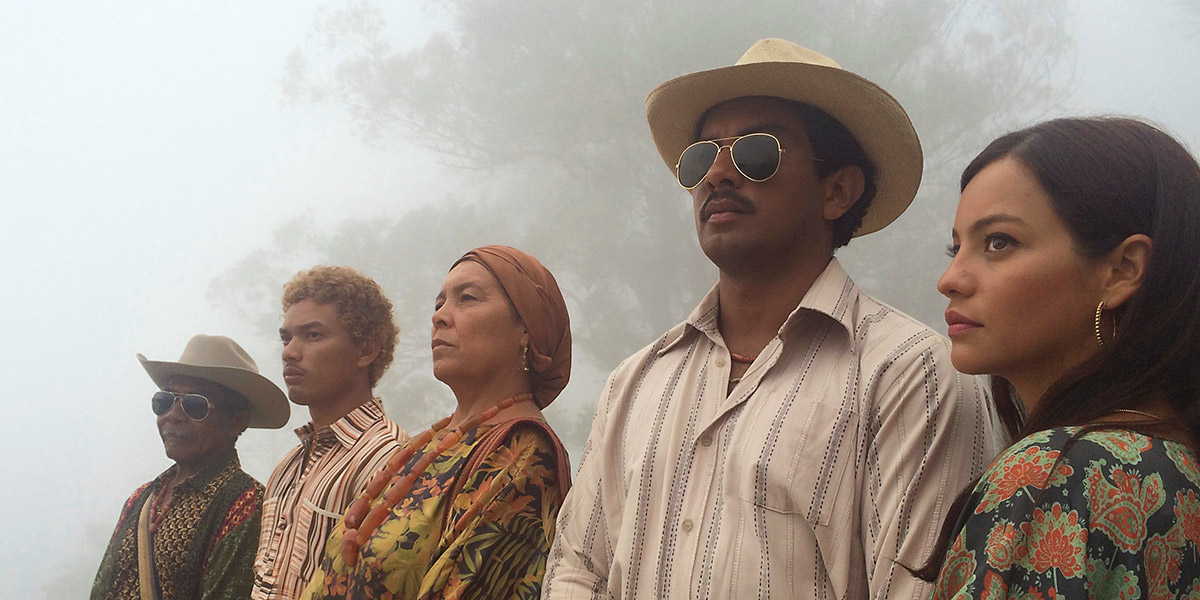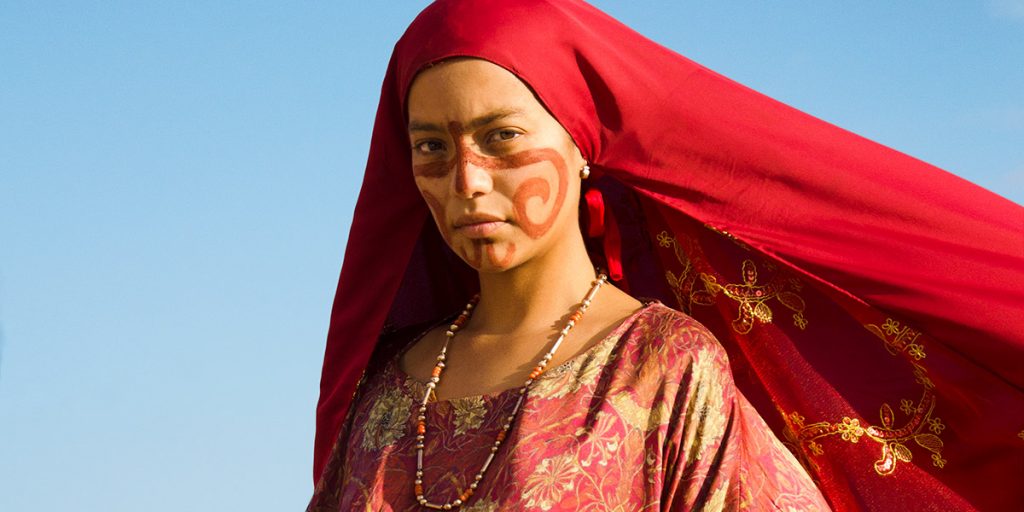The barren landscapes of La Guajira, the northernmost tip of Colombia, are not often seen on the big screen. Far from the lush green jungles of the Amazon and a far cry from the urban centers in the Andes that are so central to Colombia’s cultural imagination outside its borders, the arid deserts of that region play backdrop to Cristina Gallego and Ciro Guerra’s Pájaros de verano (Birds of Passage), a film that’s intent on telling a familiar story anew. Based, as we’re told in the opening title card, on real events that took place in La Guajira from the ’60s all the way through the ’80s, this is a homegrown origin tale of the drug trafficking routes that so dominated Colombia’s violent history in the latter half of the twentieth century. Yet people like Pablo Escobar and organizations like the Cali Cartel are but footnotes to the story at hand.
At its center are the Wayuu people, whom we meet in the very first scene of the film, setting us up for a take on Colombian history that will privilege this indigenous group and its traditions. Young Zaida (Natalia Reyes) has just finished her months-long “encierro” where she’s been set aside from her family ahead of her entrance into adulthood. Rapayet (José Acosta) has his eyes on her and soon sets in motion the requisite actions to wed her and make her his wife, thus allying his family with hers. Rapayet and Zaida’s union sets the stage for the drama that soon befalls them and their people, one told with as much reverence as a Shakespearean family tragedy yet with a keen sense of cultural specificity.
The spiritual world of the Wayuu, where Zaida’s dreams are warnings and premonitions, and where the Macondo-like matron Úrsula (Carmina Martinez) rules with as much adherence to cultural traditions passed down by generations as she can, makes Birds of Passage feel like a Godfather epic anchored by a people seeing their worldview slowly slipping from their sight. Here is a drug war narrative that depends on ‘palabreros’ (Wayuu mediators) and on familial hierarchies that run against the self-serving individuality these stories so often depend on.

Telling the tale of Rapayet’s involvement in those very first drug runs that gave rise to an entire cartel enterprise allows Gallego and Guerra to represent on screen another story about the ravages of colonial history on indigenous populations. No mere victims or heroes, though, the Wayuu here portrayed are fully rendered characters, whose flaws and wants and needs and desires put them at odds with one another. The thirst for power and money that first draws Rapayet to the drug trade eventually proves to be his downfall, even as his own community struggles to right the wrongs they’ve made the more involved with violence and trafficking they’ve become. There are crimes of passion and bloody power-grabs that echo those old mafia stories from Mario Puzo. Allegiances across and against families structure much of Birds of Passage, making every death and every threat a deeply personal one for all involved.
Here’s where those arid landscapes serve Gallego and Guerra so well. Inhospitable at first sight yet home to a resilient people, the dusty windswept lands that so characterize La Guajira end up working as a perfect backdrop for this epic family saga about doing the most with what you have. There’s a wide emptiness to these landscapes — which are shot exquisitely by Embrace of the Serpent‘s David Gallego — that can feel equally as liberating as claustrophobic. In a dream, Zaida sees her grandmother showing her the way, an endless road out onto the sea. It is both a promise and a warning, one that will haunt her and the family she creates with Rapayet for years to come. Intoxicating for the way it manages to make a narco narrative feel new and visually stunning in how it turns La Guajira into a broad dreamlike canvas, Birds of Passage is a towering achievement. It’s a reminder that Colombian cinema is flourishing, announcing to the world that it is more than capable of taking and breaking old Hollywood genres and molding them into something altogether more entrancing, more alluring, but no less entertaining.
Birds of Passage opens in select cities on February 13, 2019.







